Filter opties

Bio-based value chains
EC DG Research: Mobilization of Industrial Capacity Building for Advanced Biofuels | 2026
A new European Commission report provides insights on how advanced biofuel production can be scaled to meet EU climate targets. From now to 2030, a large increase in biofuel production capacity based on Annex IX feedstocks is required to fulfill the RED targets.
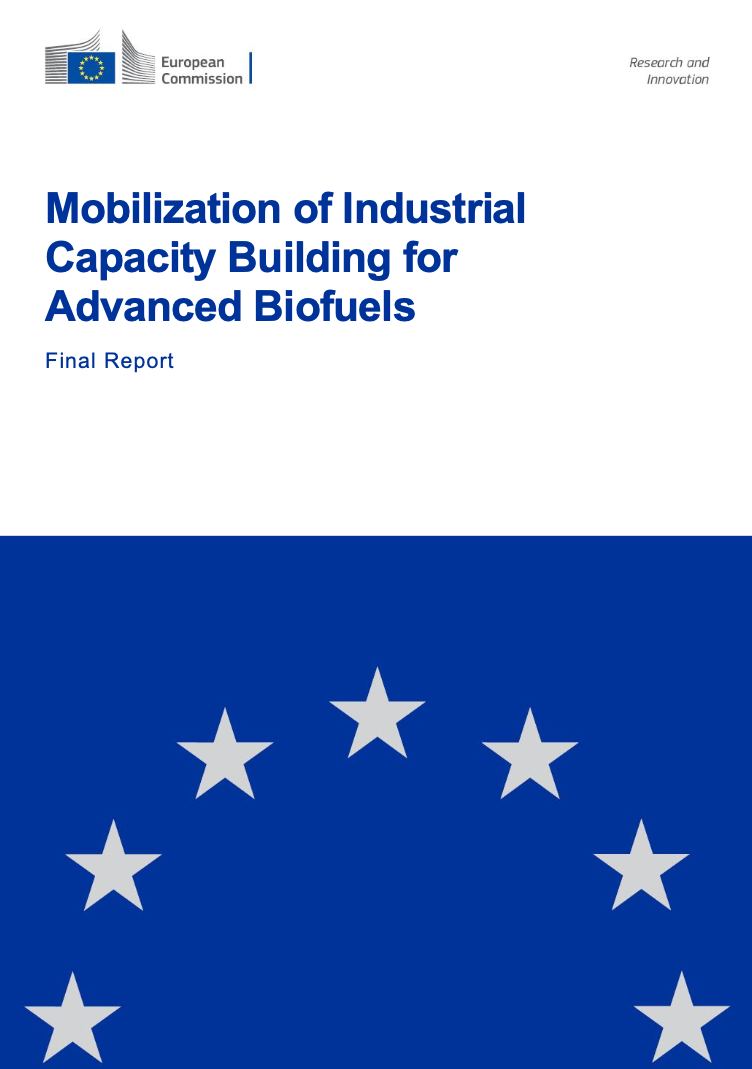
Informatiekaart: Toekomstbeeld biogrondstoffen Nederland | 2025
An information map on the future of bio-based raw materials has been published as result of a stakeholder session working towards a forthcoming strategy for bio-based feedstocks in the Netherlands.
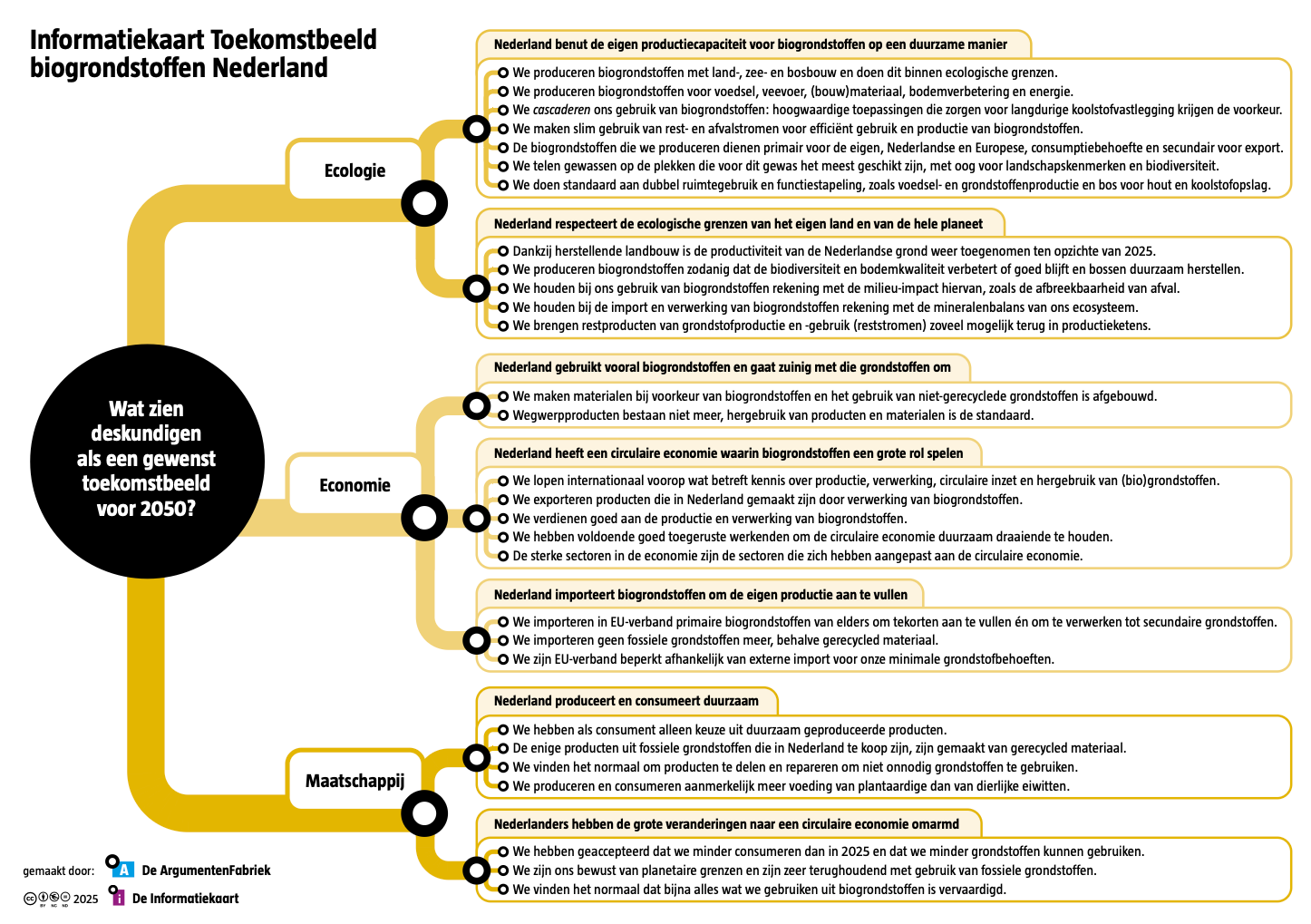
PHB report: Digital transparency in POME-biofuel supply chains | 2026
Platform Renewable Fuels was commissioned by RVO for a project on the use of digital transparency solutions applied to the specific case of palm oil mill effluent (POME) supply chains.

Non-paper by The Netherlands, Ireland, Portugal, Luxembourg: Demand creation for clean products in the steel and chemical industry | 2025
Following consultation with stakeholders, such as key industry partners, the Netherlands, Ireland,Portugal, Luxembourg propose a set of targeted measures to strengthen demand creation for clean products in the steel and chemical industry.

Millinger et al: Diversity of biomass usage pathways to achieve emissions targets in the European energy system | 2024
The paper investigates the energy system in Europe associated with the different sector and explores near-optimal solutions for achieving emissions targets. The main finding: provision of biogenic carbon has higher value than bioenergy provision.
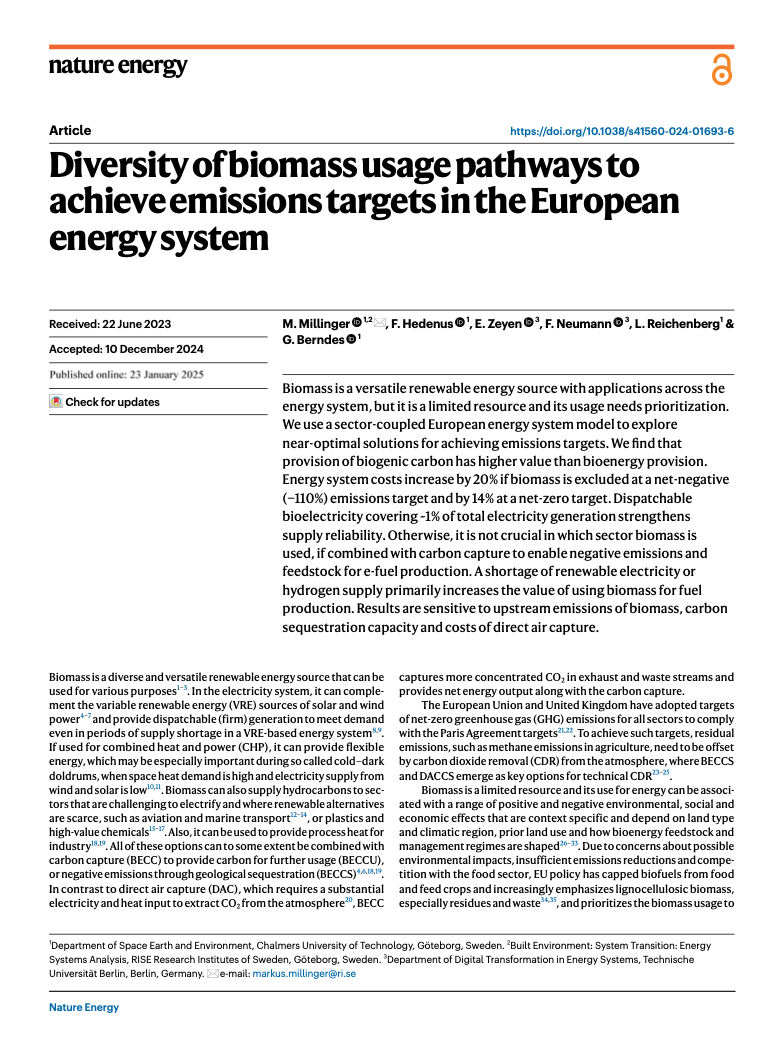
Retrospective on Lunch Seminar: Rethink strategic autonomy | December 15, 2025
Platform Renewable Fuels hosted a seminar to rethink renewable fuels for strategic autonomy. The message is clear; we must consider renewable fuels to reach self sufficiency, organise feedstocks for green chemistry and a realise a pathway away from fossil.
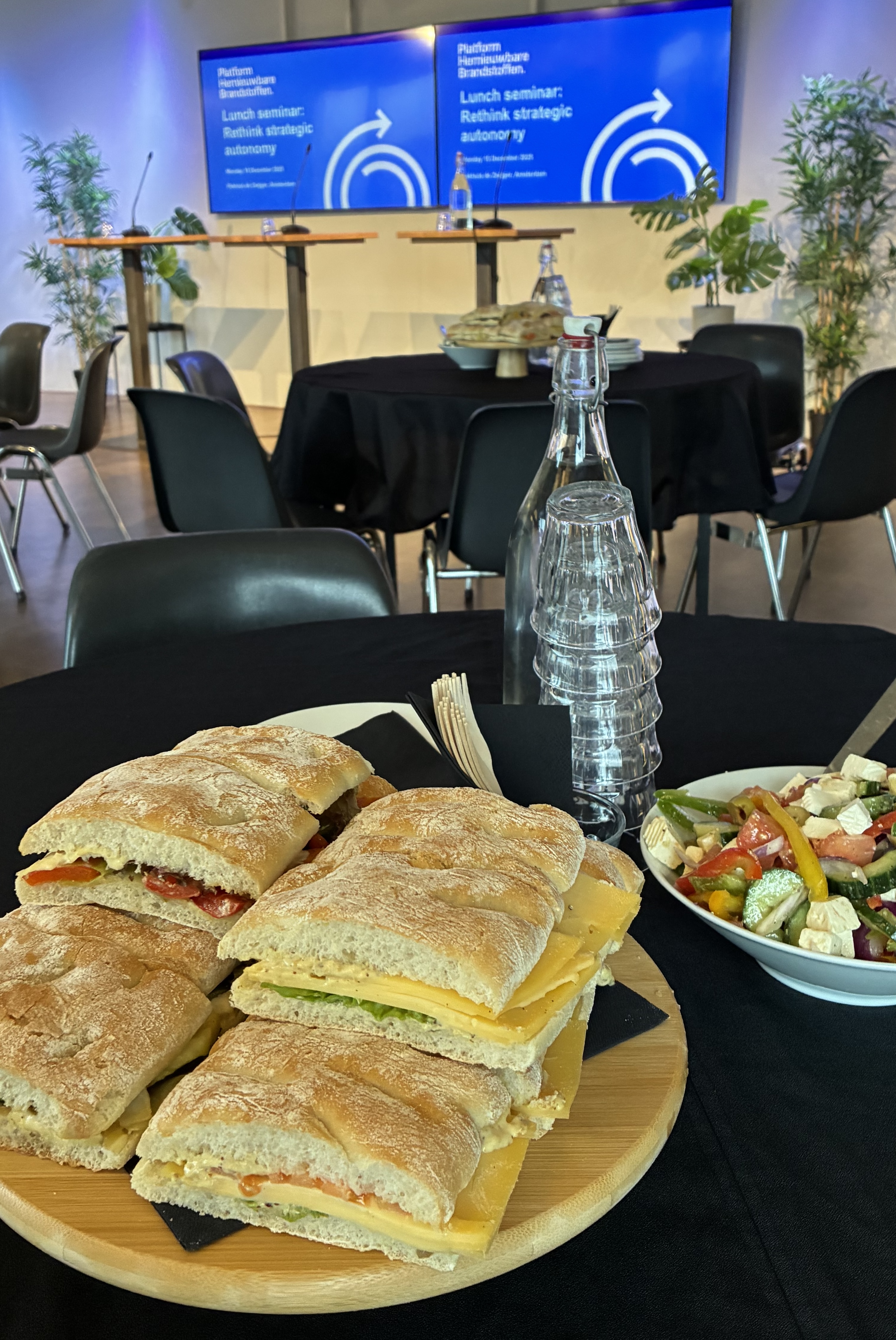
New Strategic Framework for a competitive and sustainable EU Bioeconomy
The European Commission adopted a new Bioeconomy strategy for a competitive and sustainable European Union charting a way forward to build a resilient, competitive and nature positive European bioeconomy.
Retrospective on joint workshop with German Platform InnoFuels and ETIP Bioenergy: Renewable fuels for a resilient society
The online workshop focused on the central question of how renewable fuels can enhance the resilience of Europe’s energy supply, using technologies that are already commercially available, scalable, and ready for immediate deployment.
Concawe: Sustainable biofeedstock supply chains for advanced biofuels in Europe towards 2050 | 2025
This report, commissioned by Concawe in collaboration with Utrecht University and TNO, presents a comprehensive, cost-optimised analysis of sustainable biofeedstock supply chains for advanced biofuel production across the EU-27 + UK for 2030 and 2050.
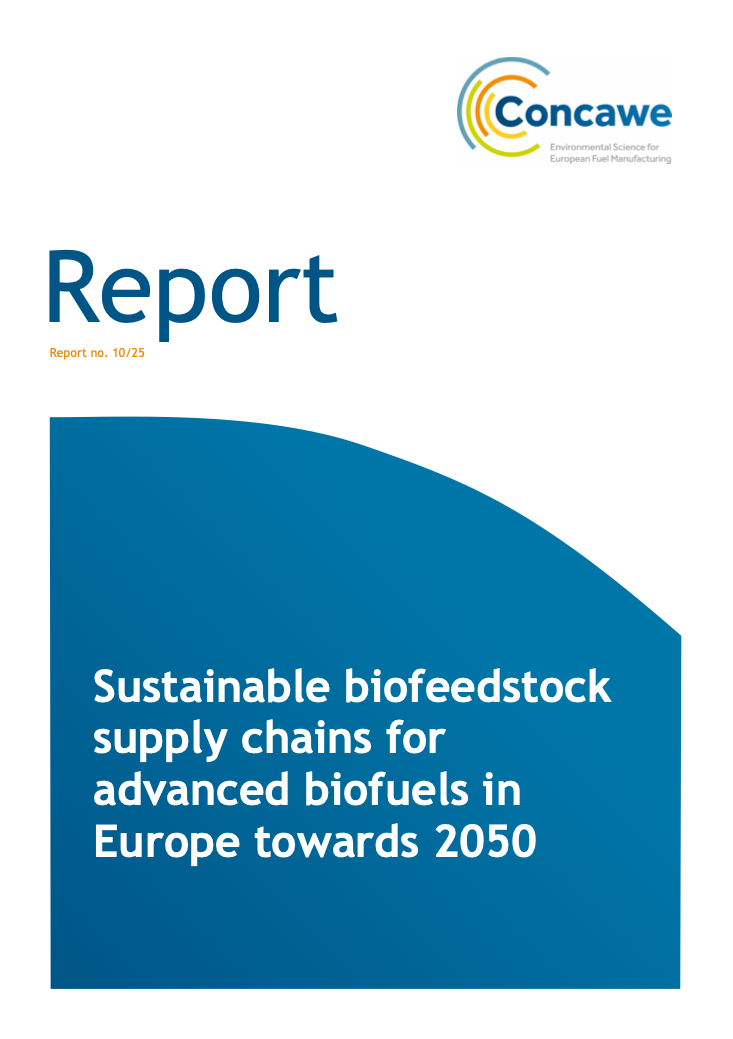
Retrospective on workshop: digital trust and POME-biofuel supply chains | 2025
Improving transparency and digital trust have been core themes of the Dutch Platform Renewable Fuels is working on. On Monday October 6, the Platform organised an online workshop to discuss digital trust in the context of POME-biofuels supply chains.
Impact van ETS2 op A-B-C-leveringen
In de Kamerbrief van 8 september 2025 heeft het Ministerie van Infrastructuur en Waterstaat de resultaten gedeeld van een verkennend onderzoek, uitgevoerd door studio Gear Up, naar de impact van ETS2 op A-B-C-leveringen van brandstoffen.
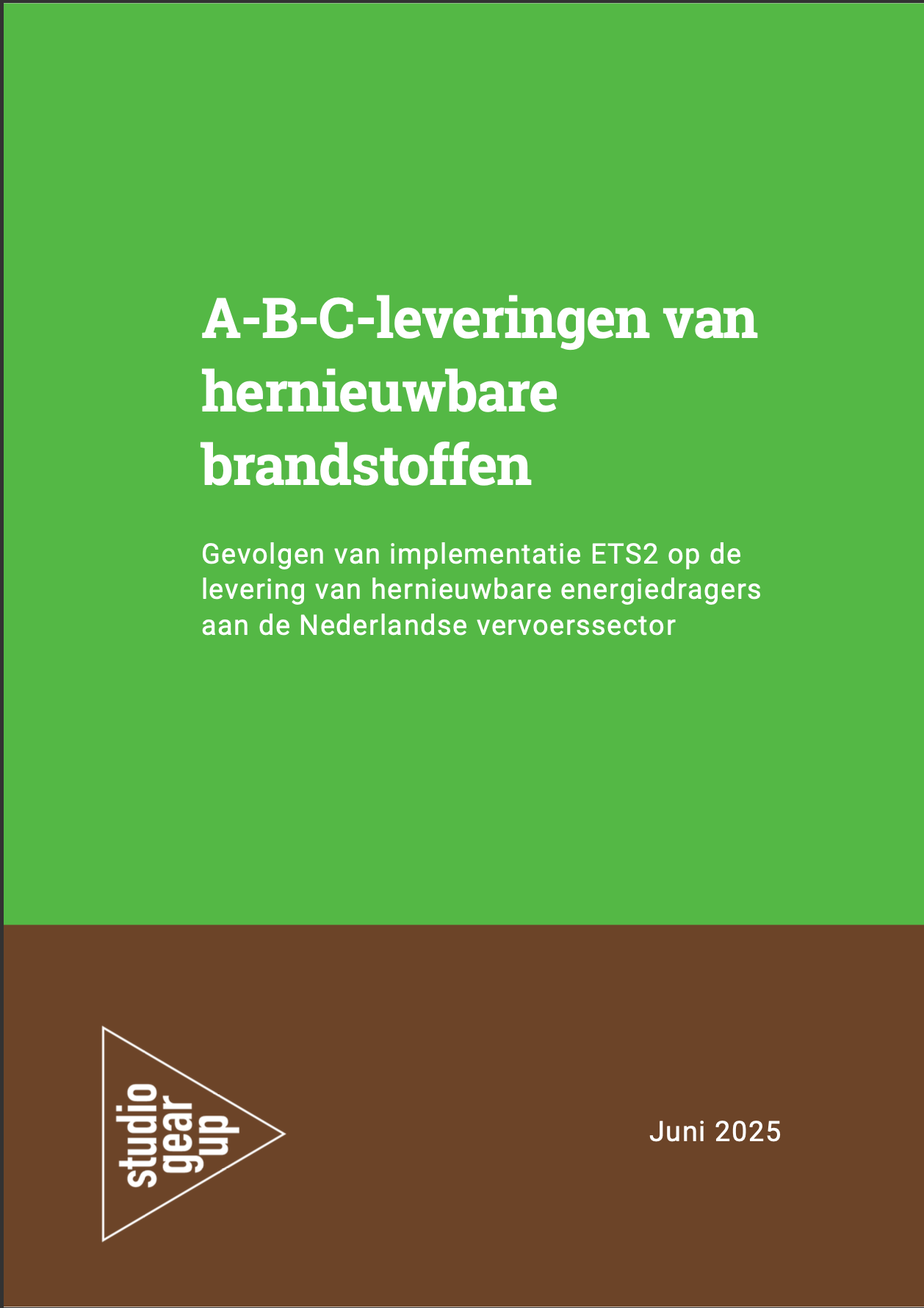
Steiner et al: A Feedstock Readiness Level Tool to Complement the Aviation Industry Fuel Readiness Level Tool | 2012
The Feedstock Readiness Level tool as developed by the United States Department of Agriculture (USDA) consists in assigning a candidate feedstock to readiness level from 1 through 10 as an indication of the level of maturity towards commercialisation.

WUR: Identifying and implementing circular applications of agri-residues | 2022
This report describes and explains a Circular Evaluation Framework that supports the decision making process in the implementation of processes for the valorisation of agri-residues or by-products.

Xu et al: Landscape Metrics and Land‑Use Patterns of Energy Crops in the Agricultural Landscape | 2023
This study investigates the spatial patterns and surrounding land uses of energy crops compared to traditional cereal crops in Sweden, and how these patterns evolved over time.

Mola-Yudego et al: Priorities for the sustainability criteria of biomass supply chains for energy | 2024
This study identifies the critieria perceived to have the highest prefenrence when evaluating the sustainablity of biomass supply chains for energy.

U.S. Department of Agriculture: Building a resilient biomass supply - A Plan to Enable the Bioeconomy in America | 2024
The U.S. department of Agriculture developed a plan to optimize and ensure a resilient biomass supply system. The report identifies policies and programs across supply chains supporting the expansion of the bioeconomy.

Retrospective: Roundtable Poland-NL about collaboration for renewable fuels
On Thursday February 27th, the first Roundtable Poland-NL took place to explore possible collaborations for renewable fuel production. The meeting was an introduction to the polish context for renewable fuel production, exploring the market opportunities and challenges in Poland.
PHB: Mass balance methodology for renewable fuels in transport / Massabalansmethodiek voor hernieuwbare brandstoffen in transport | 2025
The Platform conducted a market study on mass balancing rules for the delivery of renewable fuels via interconnected infrastructures in the Netherlands and other Member States.

Wageningen University & Research: Circularity Analysis Tool project – The circularity of residual flow utilisation | 2024
The Circularity Assessment Tool (CAT) developed by Wageningen Food and Biobased Research has recently received a budget from the “Kennis op maat” program to translate the tool into actionable projects. The Platform has made a financial contribution to this budget.

Bayer acquires camelina assets from Smart Earth
Bayer acquired camelina assets from Smart Earth. This further strengthen the company’s goal to help decarbonise the transport sector and deliver regenerative agriculture solutions through the investment and development of intermediate oilseed crop
